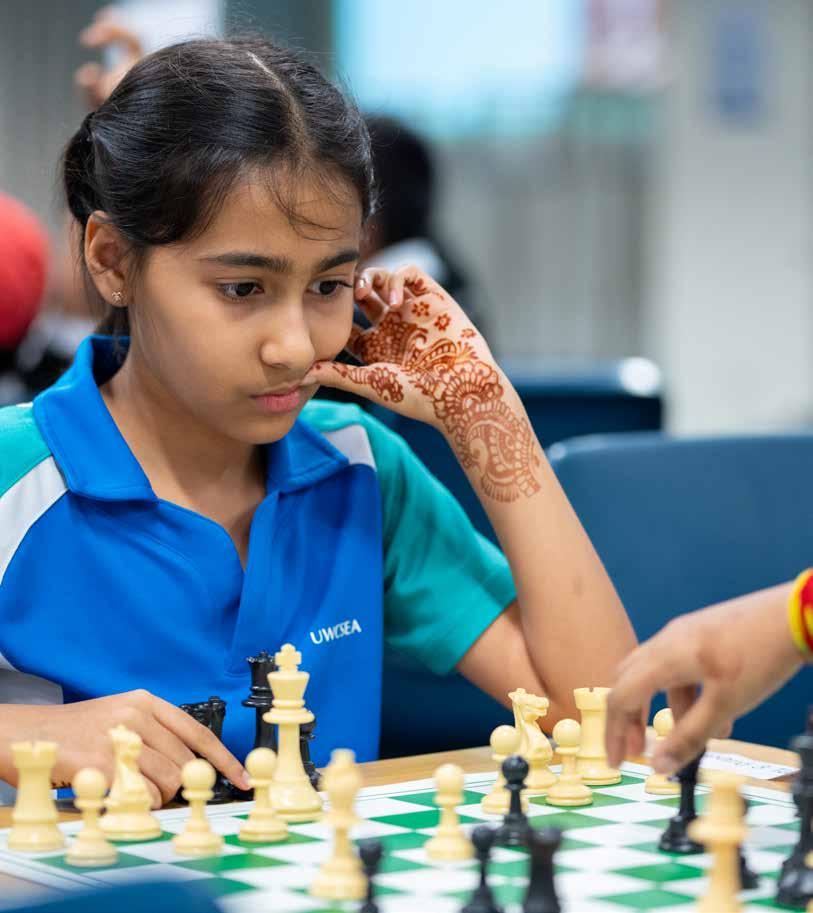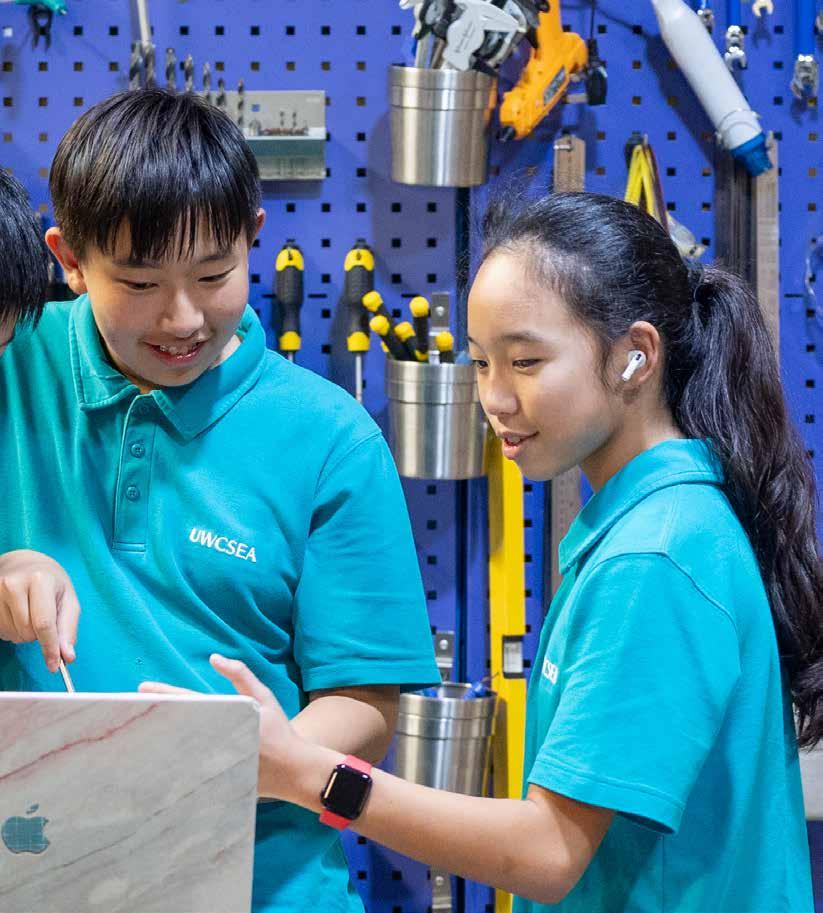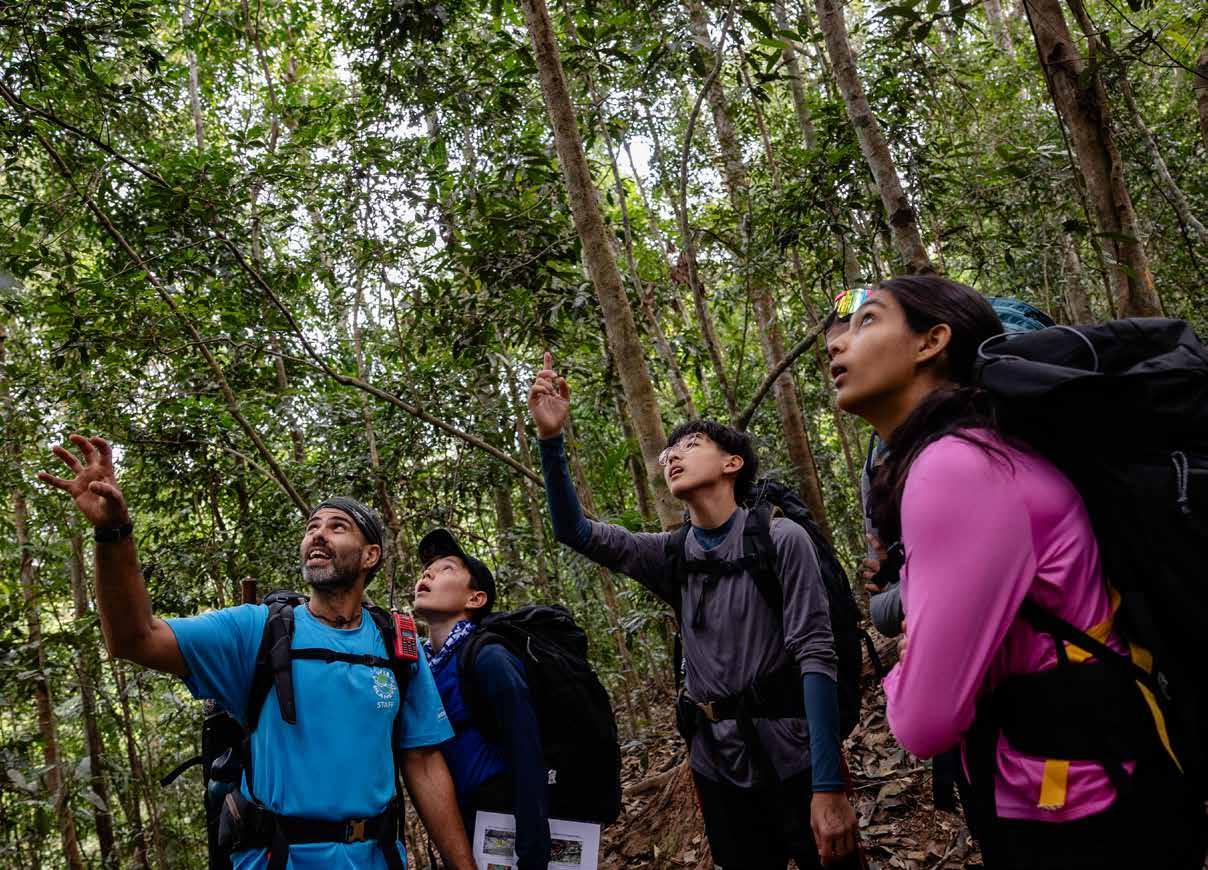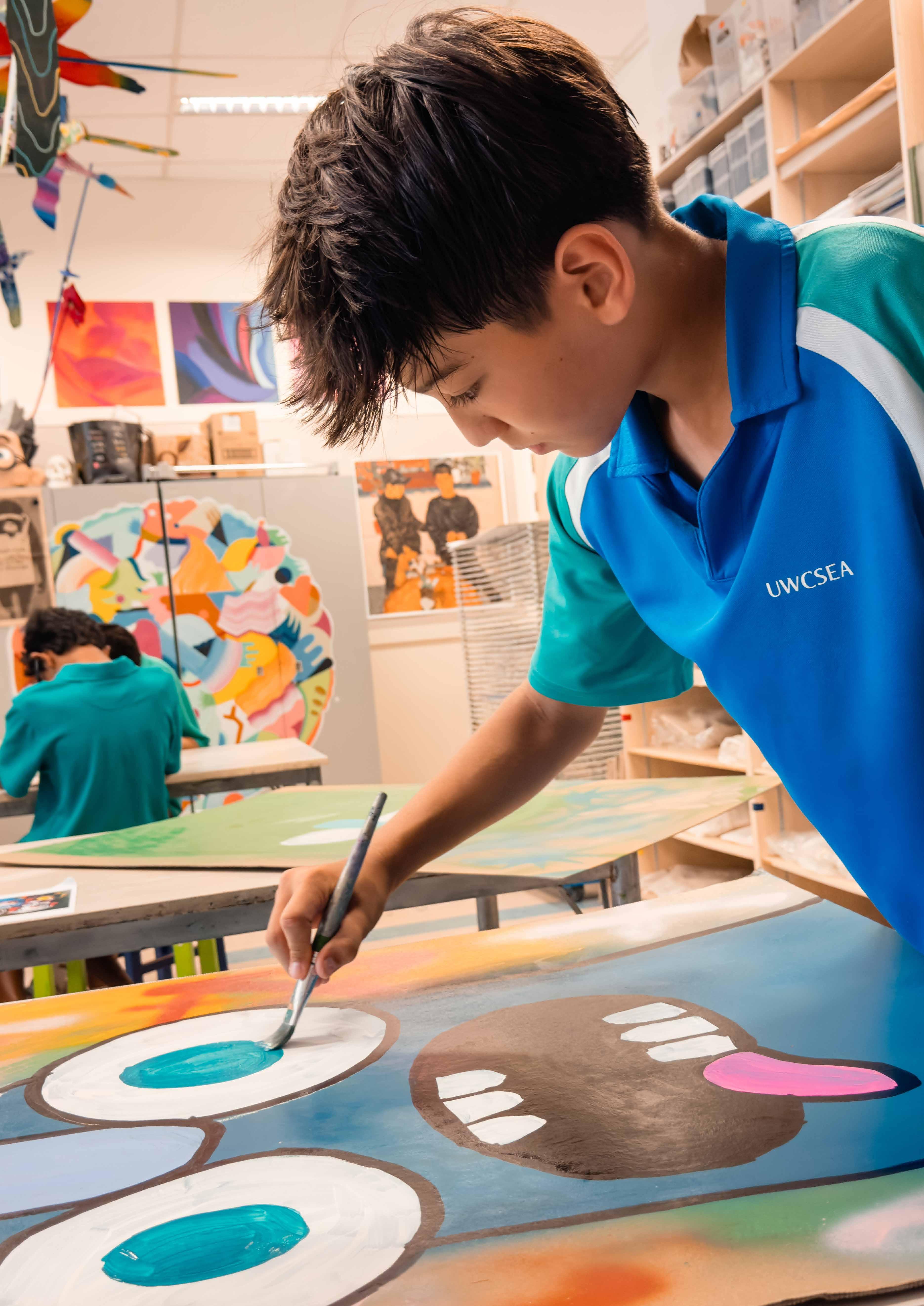
At UWCSEA, our Middle School offers a robust and challenging programme for students aged 11 to 14 (Grades 6–8), connecting rigorous academic learning with a deliberate focus on personal development, leadership, and community engagement.
Our learning programme is structured to meet the varied intellectual, emotional, and developmental needs of adolescents as they transition from Primary School and prepare for the demands of High School.
Students are encouraged to apply themselves fully in all areas of school life, with guidance and support provided in a positive and caring environment. Teachers act as role models, supporting not only academic learning but also student participation in activities, service initiatives, and outdoor education expeditions.
Our educational approach promotes conceptual understanding, global relevance, and intercultural understanding. We celebrate the rich cultural diversity of our community and encourage students to explore and understand the backgrounds and traditions of others.
A structured PSE and mentor programme provides transitional support for new students, helping them to settle into the College community and navigate the complexities of early adolescence with confidence and care.
We are committed to developing students who:
• Lead effectively when needed
• Adapt to various roles within a team
• Persevere through challenges, learning from both success and failure
• Think critically and communicate thoughtfully
• Understand their ability to play a positive role in the wider world
At every level, our Middle School provides exceptional opportunities for students to grow in independence, resilience, and leadership, preparing them not just for university, but for life.
Middle School capacity (August 2026)
* Students must be born on or between 1 September and 31 August. Refer to the age-grade boundary chart on our website for guidance, or contact Admissions.
Available places are offered up to the start of Term 2 (January) of the school year.
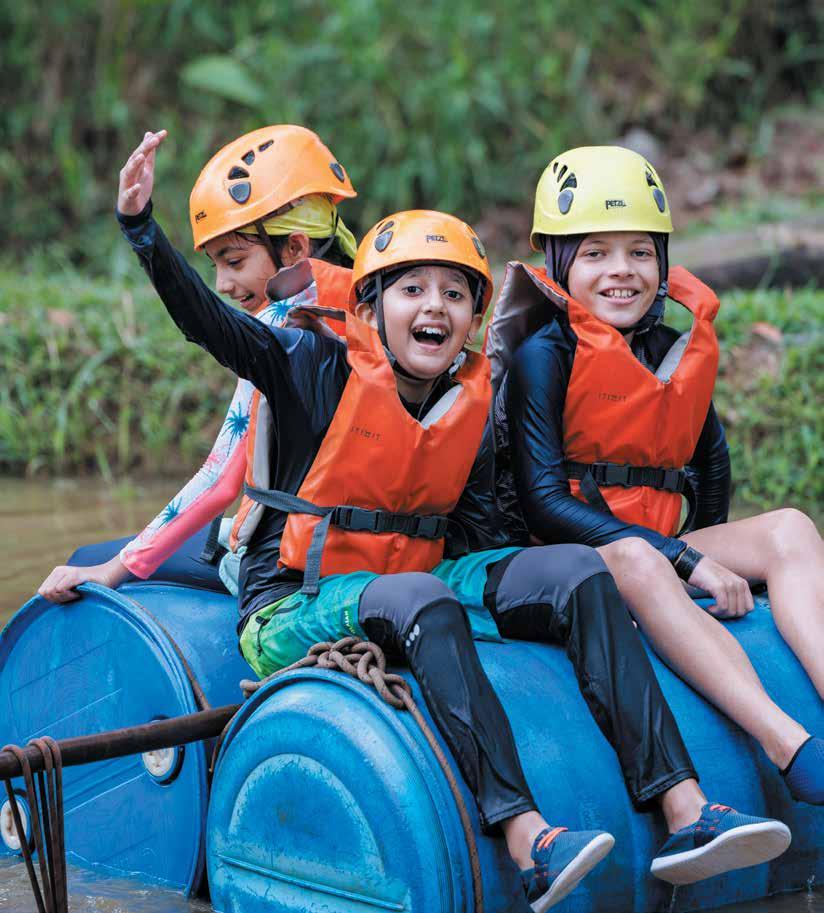
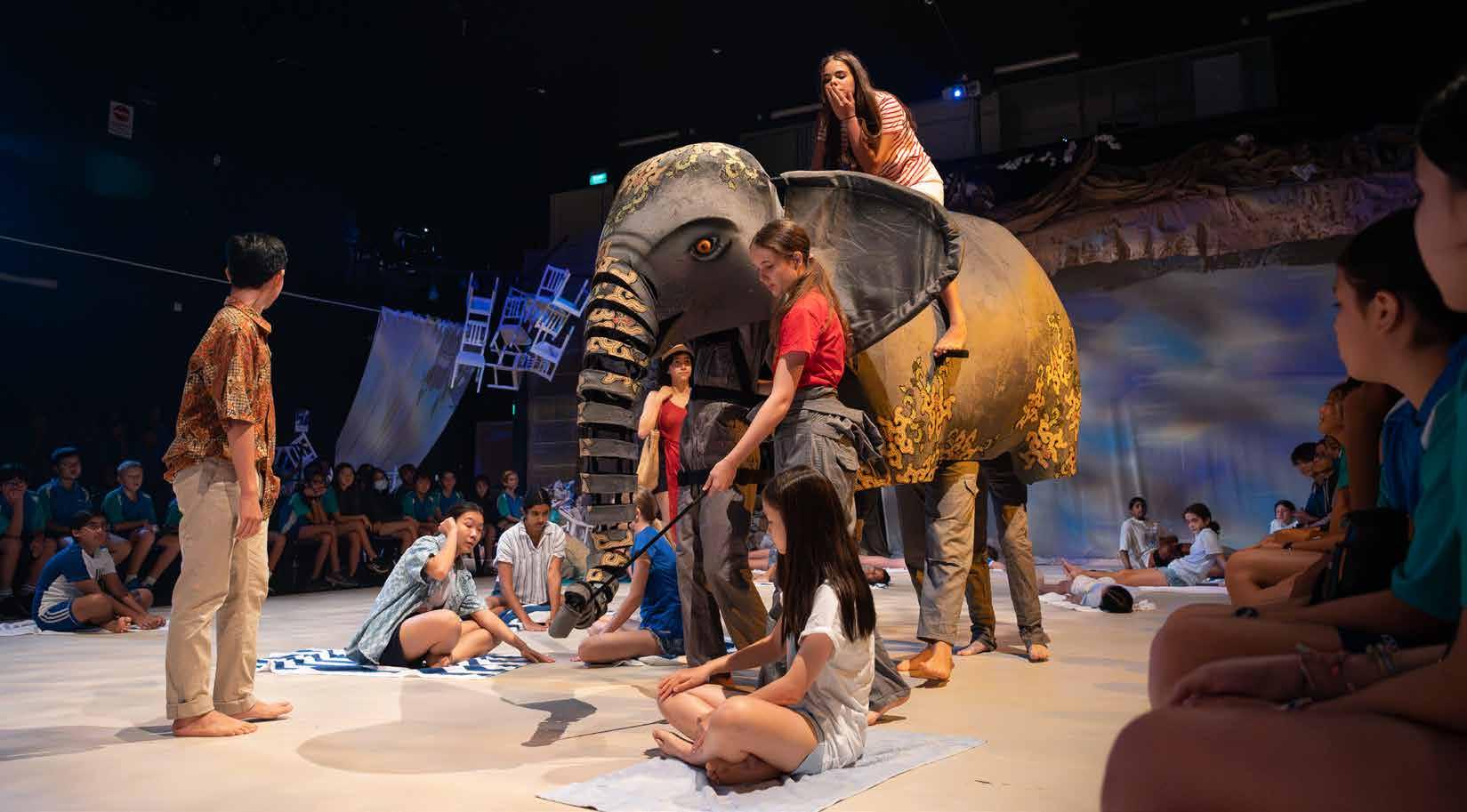
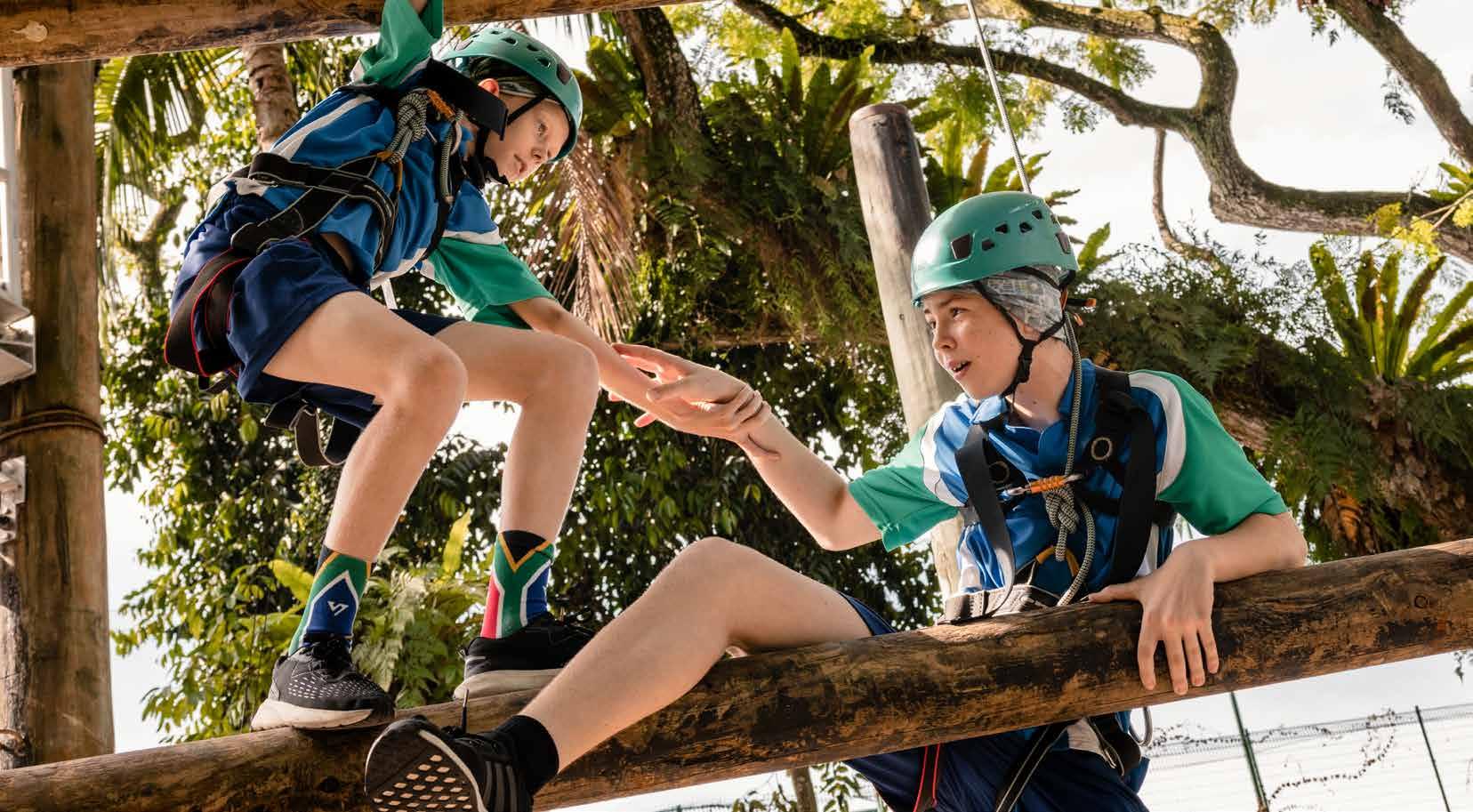
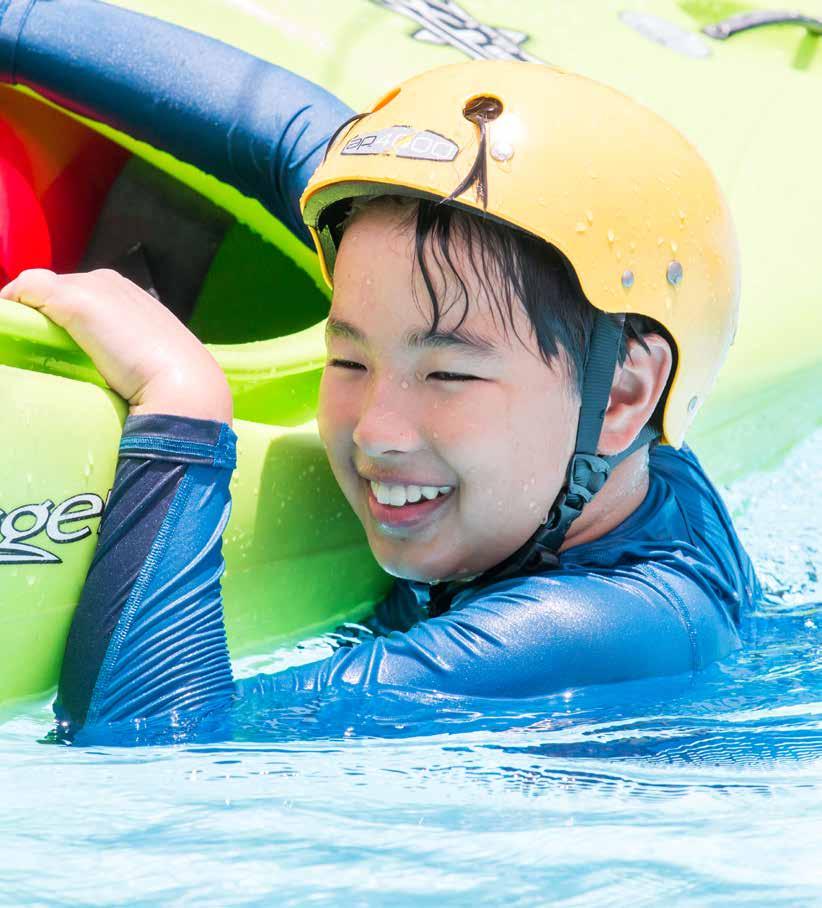
Curriculum
At UWCSEA, we offer a wide range of opportunities to help your child grow through our holistic Learning Programme, which is structured around five key elements:
• Academics
• Activities
• Outdoor Education
• Personal and Social Education (PSE)
• Service
Each of these elements is equally important, recognising that they all contribute to achieving our educational goal and developing students’ mission competencies.
We are dedicated to providing a written curriculum that is both challenging and age-appropriate. Carefully structured and aligned to our mission, the curriculum ensures that every student’s learning experience is meaningful, no matter their age or educational background.
Our curriculum is organised by six domains, which align closely to broad academic disciplines:
The design of the curriculum is informed by the UWCSEA mission statement, educational goal, College values, the needs of our students, and research-based practice.
At UWCSEA, we use a concept-based curriculum which organises learning using concepts and conceptual understandings, rather than simply listing topics or facts. The written curriculum explicitly articulates learning goals through:
• Conceptual Understandings (what students should understand)
• Knowledge (what students should know)
• Skills (what students should be able to do)
This approach ensures that learning is deep, transferable, and prepares students to connect their understanding to realworld contexts.
Students in Middle School refine the core interdisciplinary skills initiated in the Primary School. They have more subject specialist teachers guiding them in fundamental subject specific skills required for higher studies.
Students are still exposed to a broad and balanced range of subjects, with the opportunity to develop in all relevant areas; from physical, technical, creative, numerate and deductive, rational and experiential, to empathic and evaluative.
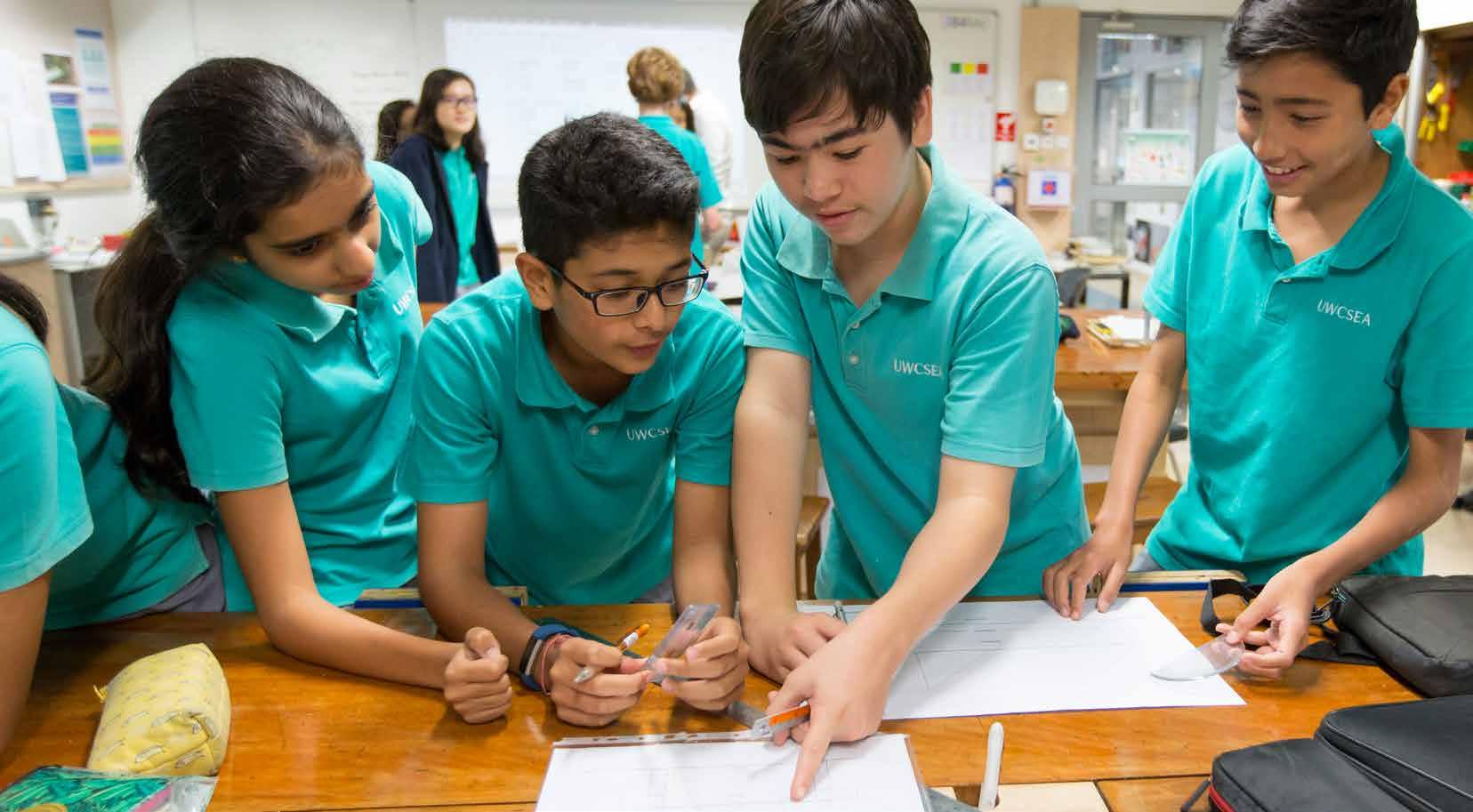
Academics
Our Middle School academic programme offers students a broad and balanced range of subjects, designed to nurture curiosity, critical thinking, and interdisciplinary connections.
Students study the core subjects of:
• English
• Humanities
• Mathematics
• Science
In addition, they explore:
• The Arts (Visual Arts, Drama, Music)
• Languages
• Physical Education (PE)
• Design and Technology
• Food and Nutrition (East Campus)
• Social and Environmental Entrepreneurship Development (East Campus)
This rich and varied curriculum ensures that students develop both depth and breadth across a wide range of disciplines, building a strong foundation for future academic success.
Students spend much of their day in the Middle School building, moving to specialist facilities and classrooms for learning in subjects such as Visual Arts, Drama, Design and Technology, Music, and PE. In Grade 6, students learn mainly within their mentor group. As they move into Grades 7 and 8, some classes are mixed so that students learn alongside peers from across the grade, not just within their mentor group.
Students are guided by subject specialist teachers who are experts in teaching Middle School-aged learners, helping them build and refine the academic skills they will need for further study.
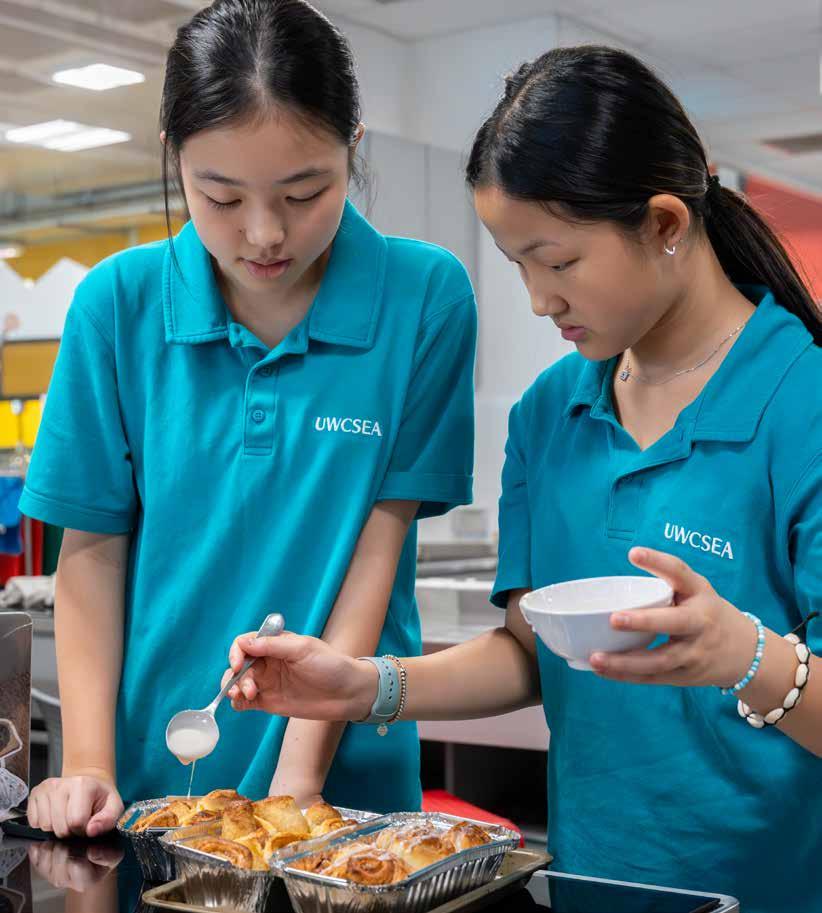
Integrated English and Humanities (Grade 6, East Campus only)
At East Campus, the Grade 6 curriculum features an integrated approach to English and Humanities.
• Students develop knowledge and skills which are woven into both the study of the humanities and the exploration of literacy.
• Students spend half a year focused on each subject area, allowing for a deep, interdisciplinary exploration that bridges language and social studies.
This integrated model helps students build strong connections between literacy skills and an understanding of the world around them.
Languages Other Than English and English for Academic Purposes (EAP)
In Middle School, most students study one Language Other Than English (LOTE) as part of their timetabled lessons. Students select their language based on their level of attainment, choosing from a range of pathways:
• Language Acquisition Beginner
• Language Acquisition Continuation (Foreign Language)
• First Language programmes
The offerings include Chinese, Spanish, French, German, Japanese, and Dutch, and depend on student numbers, campus and grade.
A small number of students who require additional support in English or Study Skills are placed into English for Academic Purposes (EAP) classes instead of taking a LOTE course.
Some First Language classes are offered after school. In these cases, students may choose to study an additional LOTE during the academic timetable.
For students whose home language is not offered within the academic timetable, the Home and Community Languages Programme provides an opportunity to continue developing literacy skills in their mother tongue. These classes are taught in small groups by qualified teachers and are offered as part of the Activities programme, at an additional cost.
For more detailed information, please refer to our Languages factsheets or contact Admissions.
Activities
Our comprehensive Activities programme provides students with opportunities to try new things, discover talents, and further develop their passions, while making new friends through the sharing of common interests. It also aims to foster a lifelong passion for physical activity, teamwork, leadership, and holistic wellbeing.
The diverse range of activities includes:
• Competitive and recreational sports
• Music
• Visual and performing arts (including art, drama, dance)
• Leadership opportunities
• Service initiatives
• Curriculum-based and enrichment activities
The programme is offered across four ‘seasons,’ allowing students to explore a wide variety of new interests throughout the school year.
Students who take part in after-school sports benefit from access to extensive coaching support and outstanding facilities.
Sports, Health, Fitness and Wellness
Sport and wellbeing are an integral part of student life at UWCSEA. In Middle School, we offer a wide range of opportunities to develop physical skills, resilience, teamwork, and a lifelong commitment to health and fitness under the banner of our distinctive campus identities – the Phoenix at Dover Campus and the Dragons at East Campus.
Students have the opportunity to represent their campus in a wide range of sports, including:
• Athletics
• Badminton
• Basketball
• Climbing
• Cross country
• Football
• Golf
• Gymnastics
• Hockey
• Netball
• Rugby
• Sailing
• Softball
• Swimming
• Tennis
• Touch rugby
• Volleyball
In addition to competitive sports, a variety of recreational activities and wellness opportunities are available, including:
• Martial arts
• Fencing
• Rock climbing
• Ultimate Frisbee
• Fitness training
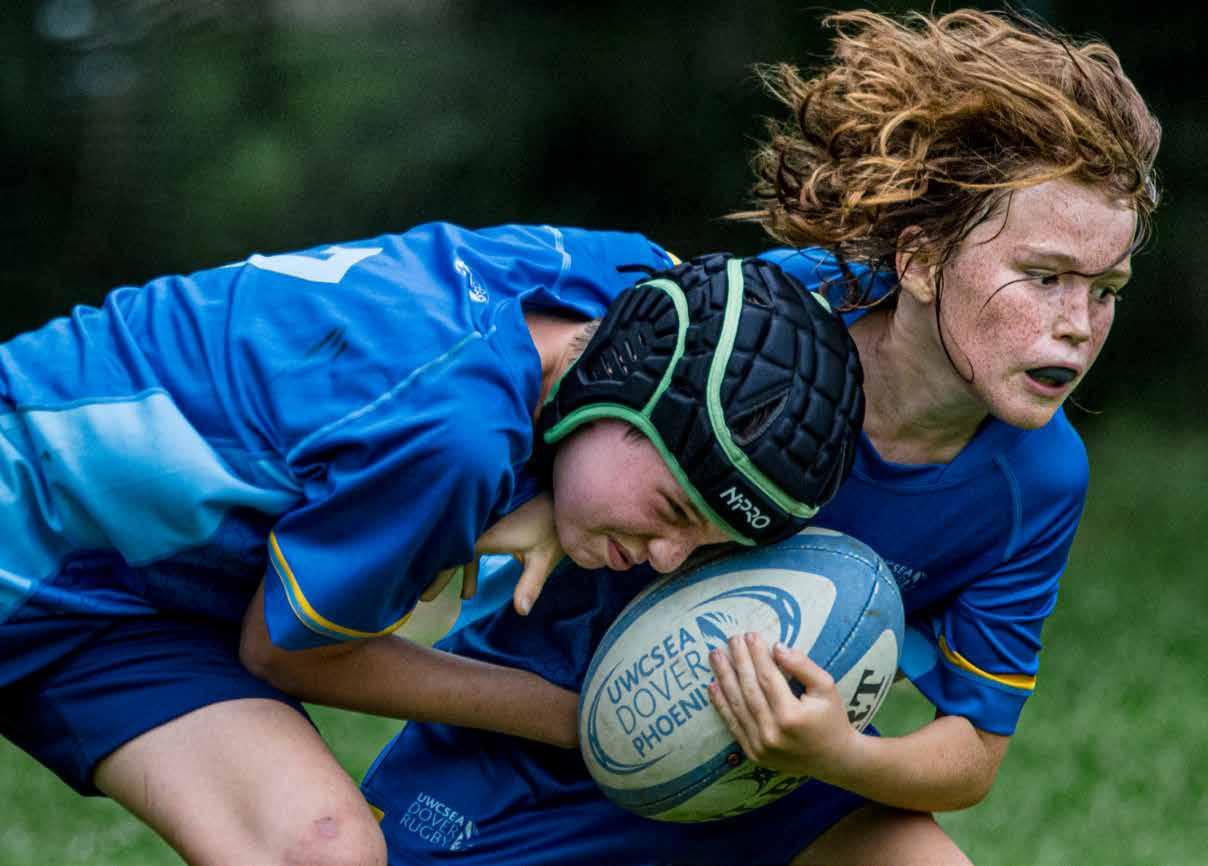
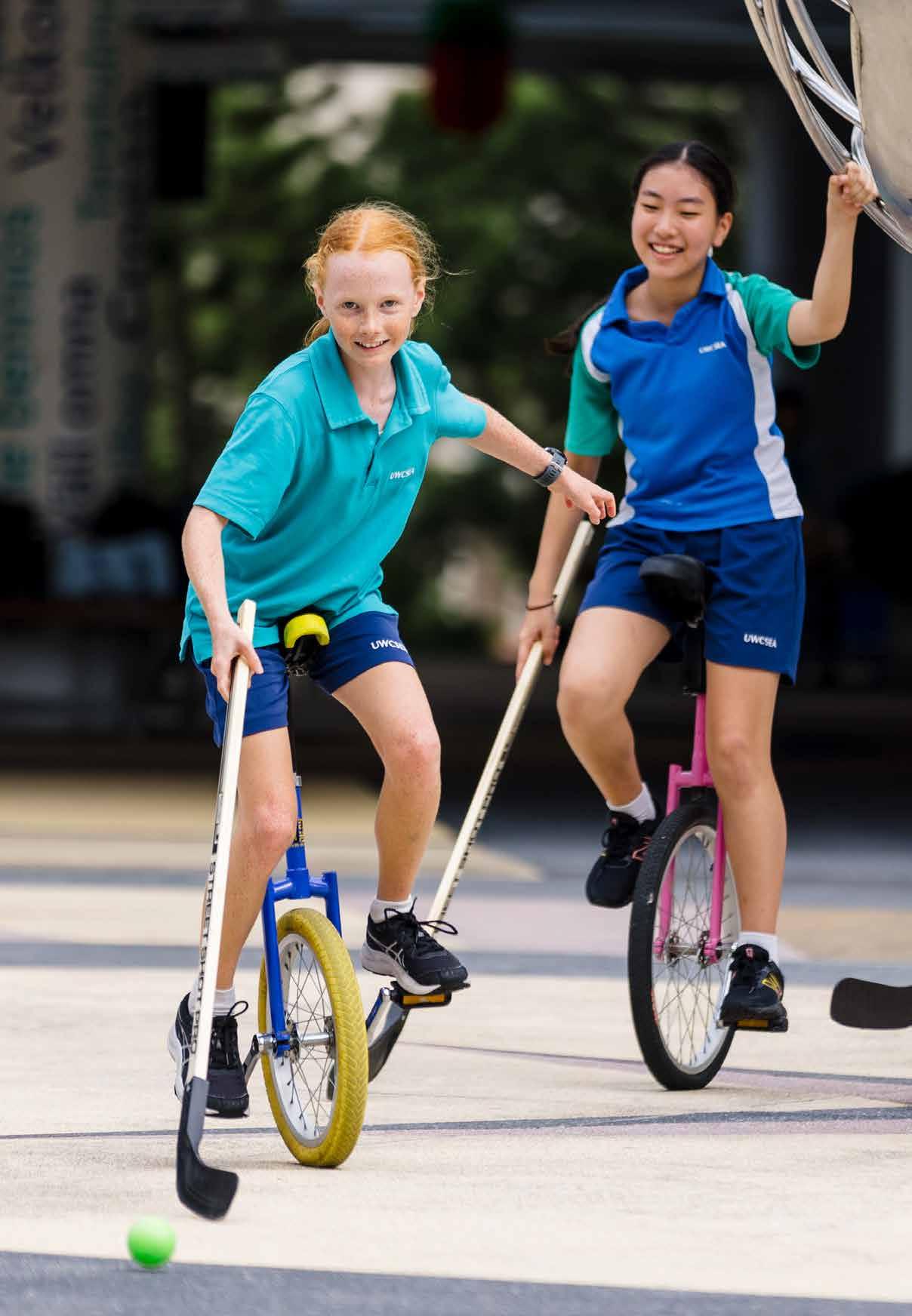
• Yoga
• Dance
• Meditation
• Mindfulness activities
Our Sports, Health, Fitness and Wellness programmes aim to encourage students to embrace an active lifestyle, whether through competitive representation or personal development.

Arts, Design and Technology
At UWCSEA, students have a wealth of opportunities to explore their creativity, develop their talents, and express themselves through a diverse range of arts, performance, and design activities.
Students can participate in musical and vocal ensembles, with opportunities to perform in several concerts each year. Highlights include events such as Dragon Scales and the annual OPUS concert at Singapore’s Esplanade. Theatre Specialist groups, including percussion ensembles focus on drumming, marimba, mbira, and more.
Individual music lessons are available through the Instrumental Teaching Programme offering a wide variety of instruments, with instrument hire also available.
Students interested in drama and dance can audition for performances and productions throughout the year, or choose to be involved behind-the-scenes in costume design, lighting, set construction, and technical theatre, supported by our Drama Department teachers.
Annual events such as United Nations evening and CultuRama offer a variety of options for students to celebrate different cultures through dance and food.
In addition to performing arts, students also have the opportunity to explore visual arts, technology, and design through activities that develop both creative and technical skills. Students can engage in fields such as:
• Fine art
• Craft
• Creative writing
• Design technology
• Food science
• Construction
• Robotics
• Engineering
Whether on stage, behind the scenes, in the art studio, or at the design table, our Arts, Design and Technology programme encourages students to pursue their artistic, inventive, and technical interests, while fostering collaboration, innovation, problem-solving, and real-world application of their skills.

Leadership, Innovation and Global Engagement
A diverse group of activities nurture creativity, critical thinking, global awareness, and leadership. Activities are drawn from the fields of technology, fine arts, craft, creative writing, cooking, construction and robotics.
Students have ample opportunity to develop leadership skills through participation in the Student Council and service leadership groups, public speaking and debating groups, home languages classes and language enrichment activities.
There are also several special interest groups such as cooking and creative culinary skills, magic and chess clubs, journalism, photography, film-making, robotics and engineering challenges.
Dedicated innovation spaces
The IDEAS Hub (Dover Campus) and Innovation@East (East Campus) are dedicated spaces equipped with tools and technology to guide and inspire students to explore, innovate, collaborate and create sustainable solutions addressing real-world problems and needs within their community.
Students can experiment with activities such as filmmaking, woodworking, 3D printing, crafting, coding, prototyping, DIY repairs, painting, sewing, cardboard construction and robotics.
Students are encouraged to adopt interdisciplinary thinking, to ruminate on solutions, tinker with ideas and develop an innovator’s mindset. They are empowered to create innovative products, services and systems while keeping the UWC Mission at the forefront of their thinking.
